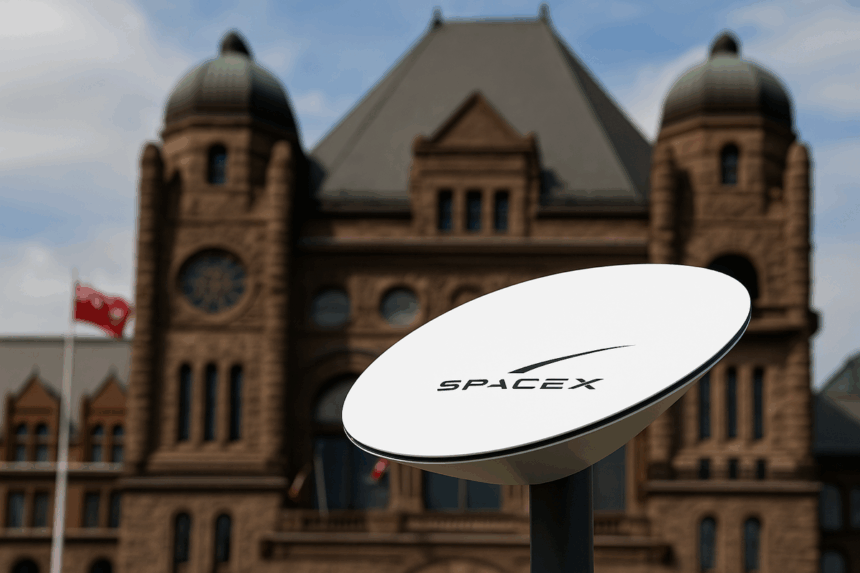Starlink Out, Broadband Delayed
Ontario’s government has pulled the plug on its $100 million broadband deal with SpaceX, effectively ending plans to use Starlink to connect remote communities to high-speed internet. The move, made in response to U.S. tariffs on Canadian goods and Elon Musk’s ties to President Trump, has triggered widespread criticism — and pushed back the province’s broadband rollout by three years.
Originally, Ontario Premier Doug Ford planned to deliver high-speed internet to all residents by the end of 2025. Now, according to Global News, that target has shifted to 2028.
What’s Happening & Why This Matters
Political Fallout and Delayed Access
Ontario’s cancellation of the Starlink deal wasn’t just about technology — it was politics and trade tensions colliding with connectivity goals. The decision came shortly after President Trump reintroduced tariffs on Canadian aluminum and steel imports.
In protest, Ford’s administration terminated SpaceX’s provincial contract, cutting off funding for Starlink’s satellite expansion in the region. The result: thousands of rural and Indigenous communities now face longer waits for reliable broadband access.
The original contract would have connected 15,000 homes and small businesses in underserved areas, covering hardware, installation, and network capacity costs. Starlink’s low-latency satellite system, which can deliver speeds up to 400 Mbps, was seen as the most efficient path to achieving universal coverage.
But with the project scrapped, Ontario must now find alternative partners using fiber, fixed wireless, or other satellite services.
Industry Response and Local Impact
Reaction has been sharp. Independent Canadian satellite installers told PCMag that the decision leaves customers stranded with limited broadband options. “It’s a setback for everyone north of the cities,” one installer said. “Starlink was already working where nothing else did.”
SpaceX had been offering discounted service packages to Canadian users, even waiving dish hardware fees to accelerate adoption. Critics argue the government’s move sacrifices connectivity progress for political symbolism.
The province has yet to provide a concrete replacement plan. A spokesperson said only:
“We will continue to explore all viable options and technologies, including fiber, fixed wireless, and satellite, to meet our goal.”
That vagueness worries experts who see the delay is a severe blow to digital equity. Ontario’s northern and Indigenous communities, many already living with poor infrastructure, will now wait months or years longer for high-speed internet — a service long considered a basic utility.
Why It’s More Than Just Internet
Ontario’s retreat from the Starlink deal illustrates the fragile balance between politics and progress in the global race for connectivity. Space-based broadband like Starlink has revolutionized access in remote and rural regions across the world — from Alaska to sub-Saharan Africa.
While traditional fiber remains the gold standard for speed and stability, its installation costs and terrain barriers make satellites a faster solution for hard-to-reach regions. By cutting ties with SpaceX, Ontario risks falling behind other Canadian provinces that continue expanding with hybrid infrastructure models.
The delay also echoes a geopolitical pattern — technology partnerships are casualties in economic disputes. As nations weigh autonomy against efficiency, citizens often lose out.
TF Summary: What’s Next
Ontario’s decision to cancel its SpaceX Starlink contract diverts the province’s broadband deadline to 2028 — and leaves thousands waiting for digital access. While officials insist they’ll find “viable alternatives,” no comparable system currently matches Starlink’s speed and reach.
MY FORECAST: Expect public pressure to mount as rural residents demand answers. Meanwhile, SpaceX is likely to redirect its efforts to regions more open to partnership. Unless Ontario finds a fast-track solution, the province’s access divide widens — and its broadband dream drifts even further into orbit.
— Text-to-Speech (TTS) provided by gspeech


